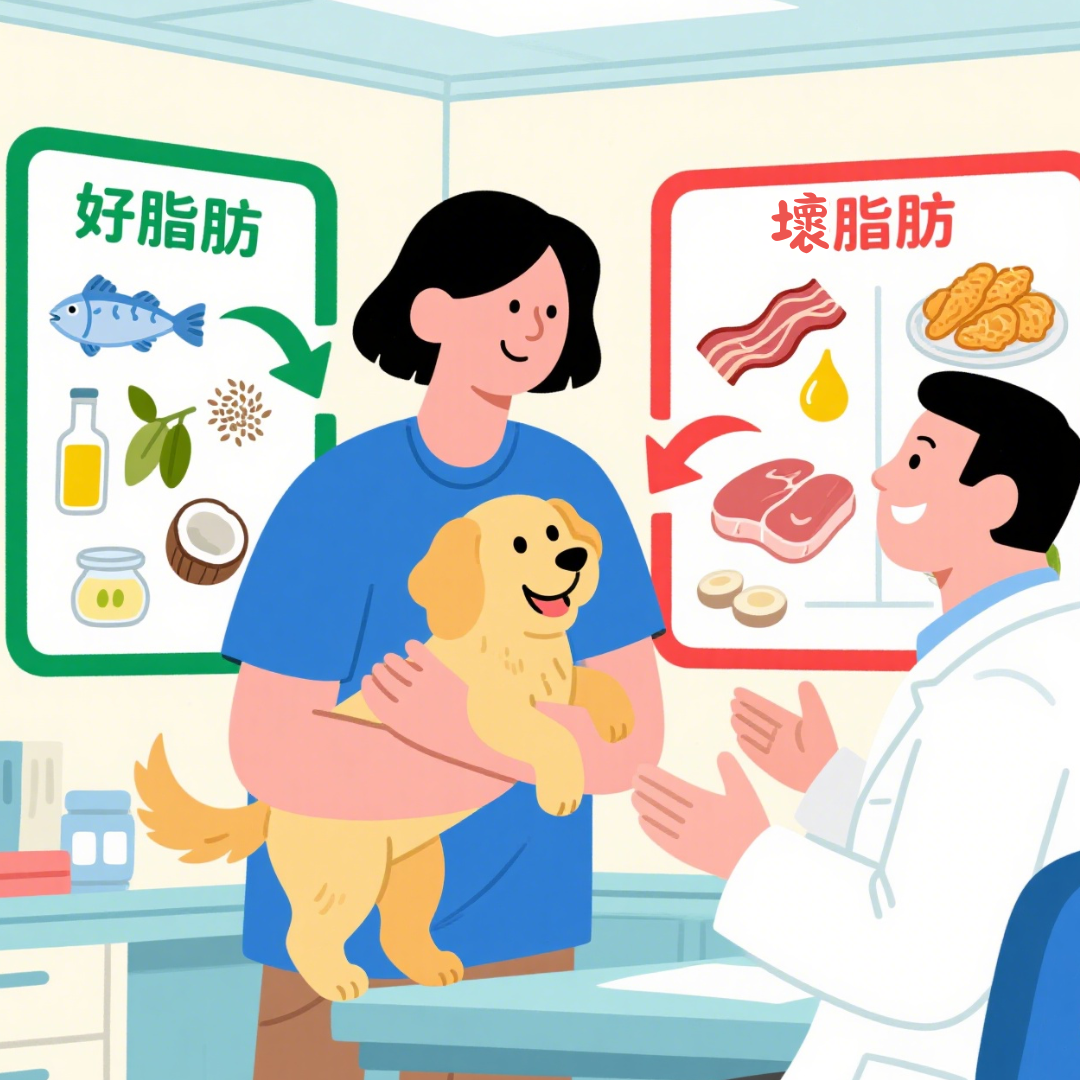Can Dogs Eat Fat? The Ultimate Guide to a Healthy Dog Diet
We all know how irresistible delicious fats can be! A moderate amount of high-quality fats is an important part of a healthy, balanced diet for both humans and pets. However, excessive fat intake can lead to various health problems.
As responsible furry parents, our mission is to ensure our dogs have the healthiest, happiest, and most fulfilling lives possible! While the occasional delicious treat can be a joy to your dog's life, the same principle of "too much is too little" applies to your pet's diet.
In this article, we'll answer key questions: Can dogs eat fat? How much fat should they consume? What foods contain good fats for dogs? We'll also provide practical guidance on how to manage fat in your dog's diet to keep your furry friend in optimal health.
Good Fats for Dogs
Fat isn't completely bad! In fact, to support your dog's overall health and well-being, you should provide them with a balanced diet that includes healthy fats.
This is because certain types of fat provide energy, facilitate nutrient absorption, maintain healthy skin and coat, nourish the brain, and help maintain healthy internal system functioning.
Like all nutrients, essential fats should be consumed in moderation. Here are some "good fats" worth including in your dog's diet:
- 🐟Omega-3 fatty acids : Found in fish oils (salmon, mackerel, sardines) and flaxseed oil, they support healthy hair, skin, and joints and have anti-inflammatory properties.
- Coconut oil : Contains medium-chain triglycerides (MCTs), which improve digestion and provide quick energy and may have antibacterial effects.
- 🫒Olive oil : Rich in monounsaturated fat, it supports cardiovascular health and has anti-inflammatory benefits.
- 🌱Flaxseed oil : A source of Omega-3, promotes healthy skin and shiny hair.
- 🐟Fish oil supplement : Conveniently provides essential omega-3 fatty acids, suitable for dogs who do not often eat fish.
Important reminder: Excess fat may lead to obesity and health problems. Please consult a pet professional before adding new foods or supplements.
Bad Fats for Dogs
It's best to limit your intake of the following fats to avoid obesity and health risks:
- 🥩Saturated fat : It is commonly found in fatty meat, animal skin, and full-fat dairy products. Excessive intake can increase the risk of heart disease.
- ⚠️Trans fats : artificial fats, commonly found in processed and fried foods, can cause inflammation.
- 🚫High -fat human foods : such as bacon and fried foods, which have too high fat content and should be avoided.
- 🦠Moldy or rancid fats : May be harmful to health, always provide fresh fats.
Avoid feeding excessive amounts of table scraps or high-fat foods with harmful seasonings.
How to Reduce Fat in Your Dog's Diet
- 🦴 Pay attention to the hidden fat in the bones and give it in moderation.
- 🍗 Remove the skin and excess fat from the meat.
- 🔍 Check the ingredients in pre-made dog food and choose natural, nutritious ingredients.
- 💬 Consult a professional pet nutritionist and adjust the diet according to individual needs.
How to Make Sure Your Dog Gets All the Necessary Fats
The following supplements are recommended to replenish essential fatty acids:
| Product Name | source | Main ingredients | Main Benefits | Applicable Targets |
|---|---|---|---|---|
| Skipper's Fresh Scottish Salmon Oil | Animal-based (salmon oil) | Omega-3, Omega-6, Omega-9 | Protects the heart, joints, hair, and brain development | All dog breeds |
| Korure Pets New Zealand Algae Oil | Plant-based (seaweed) | High concentration of DHA and EPA | Brightens hair, protects brain, is easy to digest, and is environmentally friendly | Vegetarian or sensitive stomach dogs |
Regular use of high-quality fat supplements can improve coat, skin, joint flexibility and overall vitality.
in conclusion
Dogs can eat fats, but only if they are selected in moderation and as part of a balanced diet. Fat is an important source of energy and supports healthy skin, coat, and brain. Excess fat can lead to obesity, joint problems, diabetes, and heart disease.
Providing your dog with a varied, homemade diet, supplemented with essential fatty acids like Skipper's Salmon Oil or Korure Pets Algae Oil , is the best way to ensure their health. Before making any major dietary changes, consult an experienced veterinary professional.

